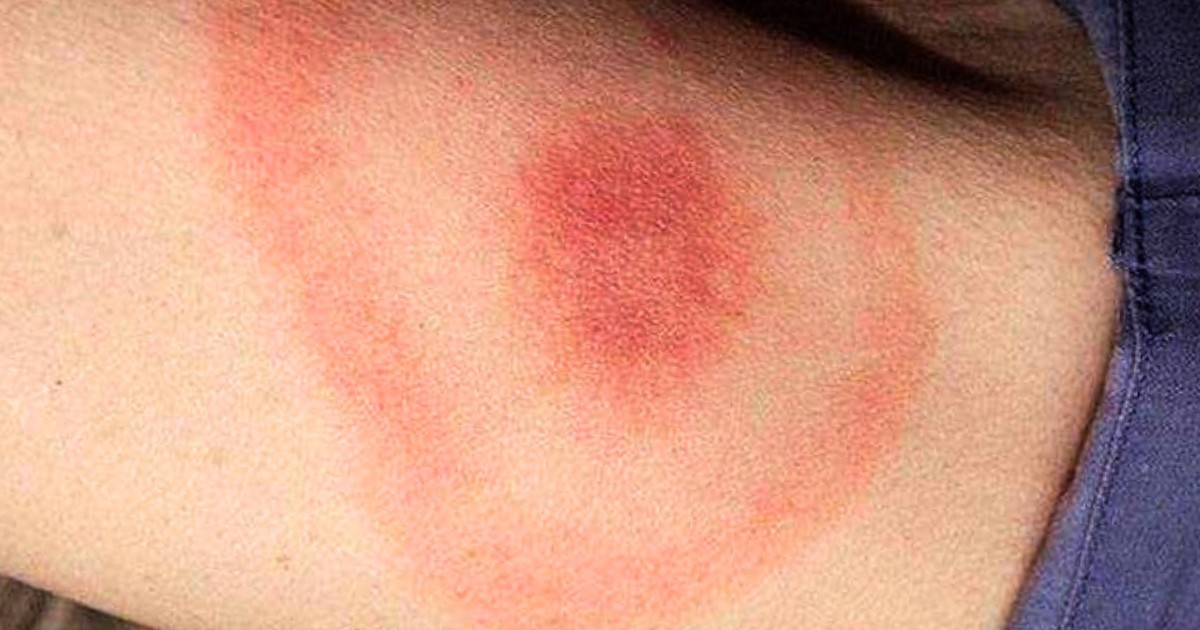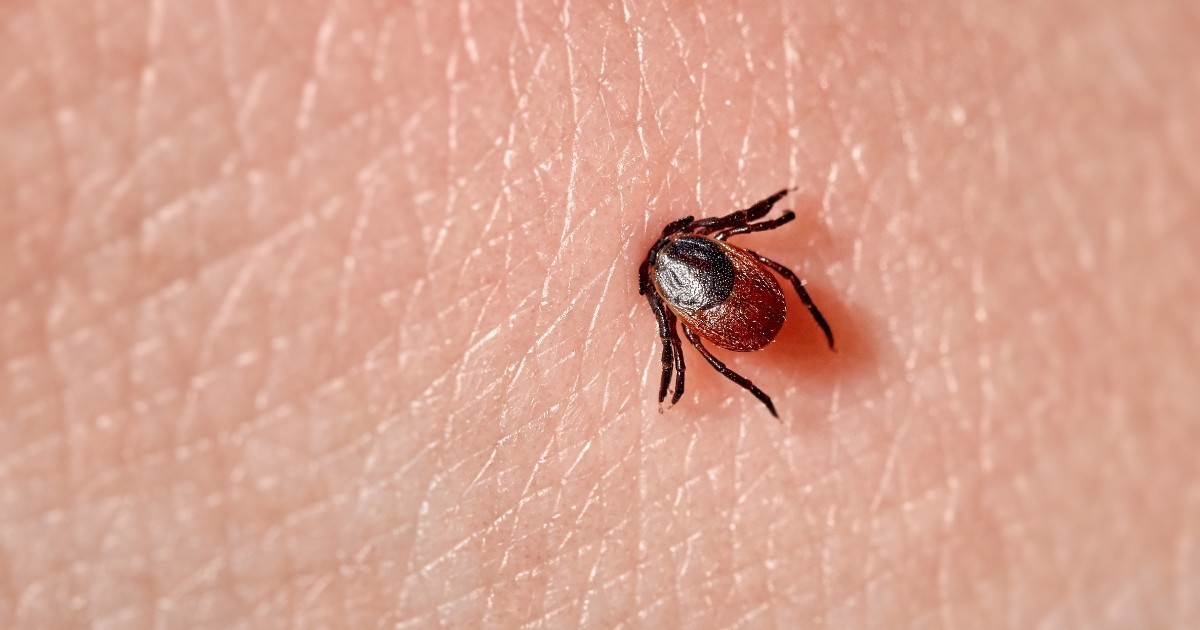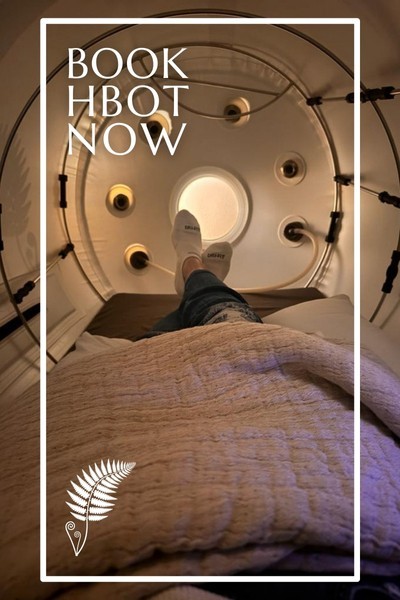
Lyme disease is an increasingly common illness that stems from a bacterial infection that can create a wide range of symptoms. Unfortunately, Lyme disease has emerged as one of the most challenging conditions to treat. Thankfully, some healthcare practitioners are having success with treating symptoms related to Lyme disease using Hyperbaric Oxygen Therapy (HBOT). HBOT involves placing the patient in a pressurized chamber filled with pure oxygen or oxygen-enriched air for the treatment of certain medical conditions.
In this article, we will look at some of the studies that support Lyme disease patients receiving Hyperbaric Oxygen Therapy as part of their treatment protocol and discuss how utilizing HBOT can complement other treatments prescribed by their physician.
Table of Contents
- What is Hyperbaric Oxygen Therapy And What are the Benefits of HBOT for Lyme Disease Patients?
- Studies Show Hyperbaric Oxygen Therapy is Effective in Treating Lyme Disease
- How many Hyperbaric Oxygen Therapy Sessions will I need?
- What are some Possible Side Effects of using HBOT for Lyme Disease Patients?
- Questions to Ask Your Doctor Before Starting HBOT Treatment for Lyme Disease
- Is Hyperbaric Oxygen Therapy for Lyme Disease Covered By Insurance?
What is Hyperbaric Oxygen Therapy And What are the Benefits of HBOT for Lyme Disease Patients?
Hyperbaric Oxygen Therapy is a treatment modality that involves breathing oxygen-enriched air while in a pressurized chamber. Under hyperbaric pressure, the blood’s oxygen-carrying capacity is increased, which leads to improved oxygenation of tissues. Recently, HBOT has gained attention as a possible supporting treatment for Lyme disease, a tick-borne illness that can cause severe discomfort and serious symptoms if left untreated.
Hyperbaric Oxygen Therapy has been found to reduce inflammation, improve immune function, and alleviate symptoms associated with Lyme disease such as fatigue, pain, and brain fog. In many cases patients who suffer from Lyme are able to decrease the use of antibiotics, under the supervision of their healthcare provider. Lyme disease itself is a microaerophile, meaning that it thrives in low oxygen environments. It is believed that HBOT can actually kill the organism by flooding it with higher amounts of oxygen.
Studies Show Hyperbaric Oxygen Therapy is Effective in Treating Lyme Disease
Lyme disease is a tricky illness to both diagnose and treat, but recent research and clinical studies have shown promising results when utilizing HBOT. This noninvasive breakthrough therapy offers hope to those suffering from Lyme disease and may lead to further research and advancements in the treatment of this complex illness.
- Hyperbaric Oxygenation for Lyme Vasculitis | W. P. Fife, Ph. D. & R. A. Neubauer, M. D
- Hyperbaric oxygen therapy as an effective adjunctive treatment for chronic Lyme disease | Journal of the Chinese Medical Association – Volume 77, Issue 5, May 2014, Pages 269-271
- Review of Treatment Options for Lyme Borreliosis | Journal of Chemotherapy – Volume 17, Issue sup2 (2005)
- Lyme disease: sudden hearing loss as the sole presentation | The Journal of Laryngology & Otology – Volume 129 Issue 2
How many Hyperbaric Oxygen Therapy Sessions will I need?
At Renewal Care Wellness, we understand that everyone’s body responds differently, so we try to find the most ideal therapy protocol that works best for you based on our protocols developed by Dr. Scott Sherr, as well as what the clinical research indicates.
Individuals with acute Lyme disease or who are experiencing a flare-up usually see a decrease in symptoms with signs of improvement within 2 to 5 mild HBOT sessions.
We’re currently in the process of reviewing a maintenance HBOT protocol for Lyme disease patients, based upon direct client experiences with those who suffer from Lyme disease. During this maintenance protocol, we are regularly seeing clients for HBOT every other week to preemptively support day-to-day comfort. The goal with this approach is to avoid Lyme flare-ups in the first place. However, a more intensive initial regimen of 3-5 times a week initially may be necessary to support stability by cumulatively reducing the more intense symptoms.
Clients with chronic and hard-to-manage Lyme disease may require a more regimented protocol of 10 to 40 HBOT sessions for longer-term benefits. With a more intensive approach, individuals see the best results if they can receive therapy by getting into a hyperbaric oxygen chamber 5 times a week over multiple weeks consecutively. Stacking sessions has cumulative impact, which for those who suffer from severe symptoms from Lyme, is the key to harnessing the power of HBOT in supporting the treatment of the disease.
What are some Possible Side Effects of using HBOT for Lyme Disease Patients?
While HBOT has shown promise in treating a variety of conditions, including Lyme disease, it is important to be aware of the possible side effects–like with any therapy or treatment approach. At Renewal Care Wellness, we operate mild hyperbaric oxygen chambers, also known as soft shell chambers. By operating our chambers at milder pressures, we can greatly minimize the risk of potential side effects related to Hyperbaric Oxygen Therapy.
Having a Jarisch-Herxheimer reaction is a phenomenon that can occur when treating certain bacterial infections, such as Lyme disease. It is characterized by an acute exacerbation of symptoms shortly after treatment begins. Commonly referred to as “herxing” or the “herx effect”, it occurs when large numbers of bacteria are killed off in a short period of time, causing the body’s immune system to become overwhelmed and release toxins into the bloodstream which can cause a temporary worsening of symptoms. Because Hyperbaric Oxygen Therapy can actually enhance the effect of antibiotics, a Jarisch-Herxheimer reaction is not uncommon.
Some patients may experience ear pain or discomfort, while others may experience temporary minor changes in vision or hear ringing in their ears.
Individuals with certain lung, heart or blood conditions may not want to consider using Hyperbaric Oxygen Therapy. As with any medical treatment or new therapy, it is best to consult with your healthcare professional before proceeding.
Questions to Ask Your Provider Before Starting HBOT Treatment for Lyme Disease
Before starting Hyperbaric Oxygen Therapy (HBOT) treatment for Lyme disease, it’s important to ask your provider the right questions to ensure you fully understand the therapy and its potential benefits and risks.
Some important questions to ask:
- What Lyme symptoms can Hyperbaric Oxygen Therapy treat?
- How many HBOT sessions for Lyme disease will I need?
- What is the success rate for Hyperbaric Oxygen Therapy in treating Lyme disease?
- How will HBOT be administered and what type of equipment will be used?
- What are the potential side effects of Hyperbaric Oxygen Therapy?
By having an open and honest conversation with your provider and asking these questions (and any others you may have) , you can make an informed decision about whether or not HBOT is the right treatment option for you.
Is Hyperbaric Oxygen Therapy for Lyme Disease Covered By Insurance?
Hyperbaric Oxygen Therapy is currently considered off-label for the treatment of Lyme disease.
HBOT is globally utilized to assist in the treatment of several illnesses, injuries, and conditions that are presently deemed off-label in the United States. Such conditions are not yet FDA-approved for HBOT treatment, and hence, insurance does not typically cover them. However, it’s important to note that being considered off-label doesn’t necessarily mean that the treatment is not safe or effective. In fact, many physicians in the U.S. prescribe various therapies and pharmaceutical drugs off-label with great success on a regular basis.
Many Health Saving Account (HSA) providers generally reimburse costs for Hyperbaric Oxygen Therapy, when the client can provide a doctor’s note or Letter of Medical Necessity (LMN) to their HSA provider.

The most common early sign of Lyme disease is a skin rash that has a “bull’s eye” appearance.
To Sum up HBOT and Lyme Disease
Hyperbaric Oxygen Therapy is a possible treatment option to consider when it comes to supporting the treatment of Lyme disease and related symptoms. Studies have clearly found that Hyperbaric Oxygen Therapy is an effective approach in reducing the severity of symptoms associated with the condition, while also having the potential for improved performance, cognitive function, appetite, and wound healing. It is important to note, however, that HBOT does come with some minor risks and side effects, so it should be discussed thoroughly with a medical professional before implementing a course of HBOT treatments. People interested in HBOT specifically for Lyme disease, should research their options carefully and ask any questions they may have about its effectiveness before moving forward. With this information in hand, patients can begin the journey toward improved health and quality of life.
Disclaimer: Statements, testimonials, and services provided by Renewal Care, LLC are not intended to diagnose, treat, cure or prevent any disease or illness. [more]
Nothing on this site is to be construed as medical advice; the authors are not doctors. The testimonials and feedback received are voluntarily provided and do not necessarily represent the views of this company. They have not been evaluated by the Food and Drug Administration and are not intended to be a substitute for professional medical advice, diagnosis or treatment. Any recommendations made by Renewal Care, LLC do not constitute as a medical recommendation and are intended for informational and educational purposes only, and no claims (real or implied) are being made. While studies support the use and effectiveness of the available therapies when used to help an individual facing various medical conditions, individual results may vary and it is the responsibility of the client to do their own personal due diligence; always ask your doctor about all treatment options, including all risks and benefits. Renewal Care, LLC is not a health care provider. Please discuss your personal health, including any options or ideas you may read on the internet (on this site or others) with your personal, qualified health practitioner before making changes to your lifestyle, diet, treatments, therapies or adjusting/discontinuing use of any medication.
















